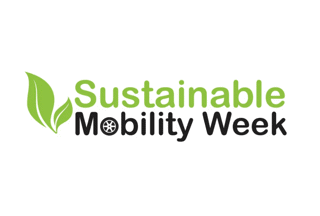Alphabet has published a new report examining how the Coronavirus pandemic has accelerated changes to travel and transport, altering consumer and business travel habits in UK cities.
It found that only a third of people expect to return to normal working habits, while a quarter expect to opt for an electric or plug-in hybrid vehicle next.
The study revealed that only 6% of those travelling to work by train feel comfortable, dropping to just 4% for tube users.
Nick Brownrigg, chief executive officer at Alphabet (GB), said: “The pandemic has had a huge impact on people and businesses, fundamentally changing how we move around and use our cities. While we can’t be sure of the long-term impact, it’s clear a lot of these changes are here to stay, and for fleet managers flexibility becomes ever more important.”
Use of more active modes of transport like cycling and walking more than doubled to 20% and 10% respectively, while a quarter of 18-44-year olds expect to retain the new modes of travel they used during lockdown.
As such, the company car may also see a surge in popularity. Alphabet’s research showed 37% of consumers would now consider using a company car following the pandemic, to enable them to travel safely, whereas prior to lockdown many employees favoured a cash benefit.
These changes are likely to remain for some time due to ongoing safety concerns and fleet managers will need to have a flexible fleet offering to handle these changing preferences when building their future mobility plans.
The improvements in city air quality during lockdown appear to have had an impact on public perception and sales of electric vehicles (EV). Adoption of EVs continued to accelerate during the pandemic, taking a record market share of new vehicle registrations in August.
Nearly a quarter (24%) of consumers said an EV or plug-in hybrid vehicle (PHEV) would be their next choice and 40% would strongly consider one. This is a substantial increase from the 19% of people considering EVs at the end of 2019.
People also want to see businesses supporting the shift to EVs and are prepared to pay for it. More than half (55%) of respondents felt delivery vans should be electric, while one in three said they would be happy to pay extra for an electric delivery vehicle.
Simon Swan, director of Future Mobility at Arcadis, added: “Due to the impact of COVID-19, all sales of vehicles took a major hit; however, electric vehicles were affected less than other vehicle types. As the UK emerges from lockdown, electric vehicle registrations continue to rise in absolute numbers with August new car registrations figures showing a record market share for pure electric cars. Analysts were expecting EV sales to hit 10% of new car registrations in 2022, not 2020. Hitting 9.7% in August is a big deal for the UK market.”
To find out more and read the full report, Fleet Streets: Accelerating changes to travel and transport in the UK, download here.






















Login to comment
Comments
No comments have been made yet.